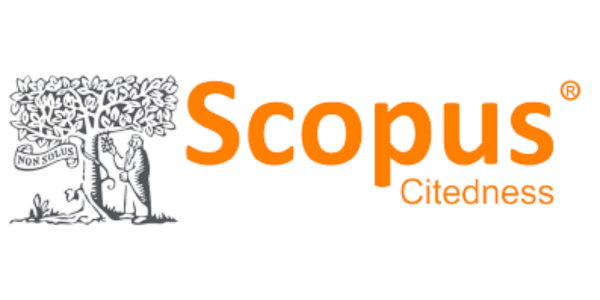MODERNISASI PEMBELAJARAN: IMPLEMENTASI PRINSIP-PRINSIP ANDRAGOGI QUR’ĀNI DALAM TRAINING THE ESQ WAY 165
DOI:
https://doi.org/10.21274/dinamika.2017.17.1.157-198Abstract
The thesis proves that as more Qur'anic Andragogy principles are applied as could build humanistic-rational individual and religious adult learner. This research does not agree with: 1) theory of Andragogy Malcolm Shepherd Knowles (1950), which emphasizes learning centered on learners and educators as facilitators. 2). Gülden Akin and Serap Karabacak Aşir (2013) statesو that Andragogy can be applied to any age level. In addition, this study also supports; 1). Trumper, which confirms that the educator other than as facilitator should also play a role in providing the experience and finding innovative ways to help learners, 2). Nadiyah Jamaluddin (1983), confirms that no doubt the education of children and adults is different, because they are different characters, the tools they need and purpose in learning. 3). Yvonne Hunter (2011) stated very important to notice that learning can become more self-directed learning, so that the learning-process result can be perceived. Based on the fact that the lack of literature on Qur'anic Andragogy causes less familiar and less developed in the community. Whereas the concept is a very big thought to contribute on the development adult education which directs learners to independence, creative, preparedness to learn and achieve the orientation of learning. In addition, the existence of the principles of Qur'anic andragogy is only a formula that has not been studied from the concept of implementation to education models like formal, informal or nonformal education. Thus, the presence of this study can be a representation and the foundation of the Islamic view. The primary data sources in this study include and Ary Ginanjar's creation like “ESQ: Rahasia Sukses Membangun Kecerdasan Emosi & Spiritual”, trainings, the results of the interview, observation and dissertation entitled “Konsep Andragogi Dalam Al-Qur’an”. While secondary data sources include some literature that related to theory Andragogy, Knowles' creation, a variety of thoughts which related to adult education, either in the form of books, dissertations, scientific journals and other relevant data sources. This research implementation of Qur'anic Andragogy principles is enriched with several disciplines such as; scientific, artistic, clinical psychology, social psychology, adult education and humanism.
References
Berstein, Paul. “Intuition: What Science Says (So Far) About How and Why Intuition Works.” Endophysics, Time, Quantum and the Subjective. Singapore: World Scientific Publishing, 2005.
Blondy, Laurie C. “Evaluation and Application of Andragogical Assumptions to the Adult Online Learning Environment.” Journal of Interactive Online Learning 6, no 2. 2007.
Burge, Liz. "Beyond Andragogy: Some Explorations for Distance Learning Design." Journal of Distance Education 3, no 1. Toronto: Eric Document Reproduction Service, 1988.
Caruth, Gail D. “Toward a Definition of Andragogy: A Grounded Theory Approach.” International Journal of Advanced Research 1, Issue 9, Texas: 2013.
Caruth, Gail D. Caruth & Donald I. “Toward an Understanding of Andragogy’s Role in the Online Curriculum of the US Higher Education System.” International Women Online Journal of Distance Education 2, issue: 2. Texas USA: 2013.
David, Gauntlett. “Examples of Talk about ‘Role Models’, and Six Types of Role Model.” David Gauntlett, Published, 2008.
Greene, Amitai Shenhav David G. Rand & Joshua D. “Divine Intuition: Cognitive Style Influences Belief in God.” Journal of Experimental Psychology. American Psychological Association, 2011.
Herabadi, Astrid Gisela. “Hubungan Antara Kebiasaan Berpikir Negatif Tentang Tubuh Dengan Body Esteem Dan Harga Diri.” Makara, Sosial Humaniora 11, no. 1: 2007.
Knowles, Malcolm. The Adult Learner: The Definite Classic in Adult Education and Human Resource Development. Houston: Gulf Publishing Company, 1998.
Lai-Fong, Yau Hon-Keung & Cheng Alison. “The Impact of Curiosity and External Regulation on Intrinsic Motivation: An Empirical Study in Hong Kong Education.” Psychology Research 2, no. 5. Hong Kong: 2012.
Langgulung, Che Noraini Hashim & Hasan. “Islamic Religious Curriculum in Muslim Countries: The Experiences of Indonesia and Malaysia.” Bulletin of Education & Research 30, no. 1. Institute of Education (INSTED), International Islamic University, Malaysia: 2008.
Lubin, Melissa Maybury. “Coaching the Adult Learner: A Frame Work for Engaging the Principles and Processes of Andragogy for Best Practices in Coaching.” Disertasi 2013, 8.
Marden, Rose A. “Why Don’t They Come? Enhancing Participation in Parish Adult Faith Formation.” Washington. D.C: The Catholic University of America, 2014.
Maslow, H. “A Theory of Human Motivation.” Classics in the History of Psychology. York University, Toronto, Ontario: 2000.
Nick, Masaki Kobayashi & Peter. Harakiri. “Plant Cell Harakiri—Programmed Cell Death in Development.” Springer-Verlag. Karlsruhe, Germany: 2011.
Schultz, Richard B. “A Critical Examination of the Teaching Methodologies Pertaining to Distance Learning In Geographic Education: Andragogy in an Adult Online Certificate Program.” Review of International Geographical Education Online 2. USA: Spring, 2012.¬¬¬
Seiden, Richard H. “Where Are They Now? A Follow-up Study of Suicide Attempters from the Golden Gate Bridge.” Suicide and Life Threatening Behavior 8/4. Human Sciences Press, 1978.
UNESCO-Beirut. “Regional Office for Education in the Arab States, “Literacy and Adult Education in the Arab World.” Hamburg: UNESCO Institute for Education (UIE).








